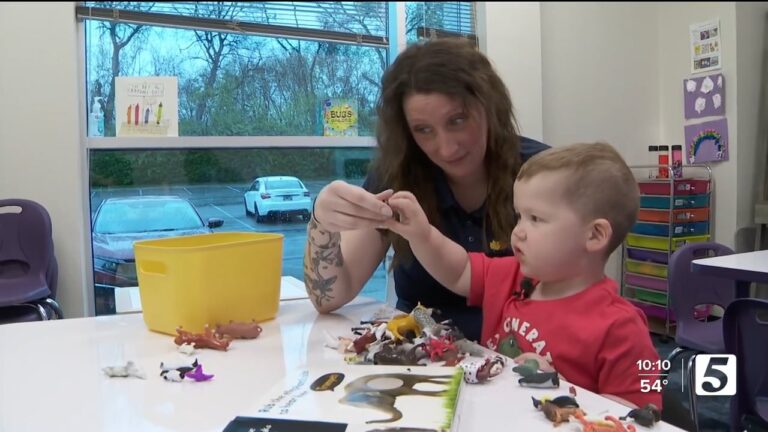How do we identify autism reliably?
The growing acceptance of Autism Spectrum Disorder (ASD) is a testament to the evolution of our understanding of this complex condition. It suggests that gaining access to identify the signs of autism. However, a prevalent challenge remains: these symptoms often overlap with those of other disorders, which is confusing for those searching for answers. Thus, the pivotal question is: How do we identify autism reliably?
The symptoms of autism are diverse, reflecting the unique characteristics of each neurodivergent individual. This wide-ranging diversity can sometimes lead to misconceptions about the disorder. For instance, a common misbelief is that all individuals with autism struggle with verbal communication or can articulate only a handful of words. This notion disregards the fact that many individuals on the spectrum may possess remarkable IQs and exceptional memory or display extraordinary talents in mathematics.
Recent data from the Centers for Disease Control and Prevention reveals an upward trend in autism diagnoses. It reports that one in every 36 children aged eight years old (approximately 2.8%) is diagnosed with autism. In Tennessee alone, there are an estimated 25,577 cases of individuals on the spectrum.
In this blog post by the ABA Centers of Tennessee, we aim to deepen your understanding of autism acceptance. We will explore some of the most common signs of autism and provide insights into effective treatment methods, mainly focusing on Applied Behavior Analysis (ABA) therapy.
What are the Signs of Autism?
As mentioned earlier, the term “spectrum” in autism refers to a broad range of symptoms and severity levels. Autism, a neurodevelopmental disorder, is characterized by challenges in social interaction, communication, and repetitive behaviors. The spectrum illustrates the variability in how these characteristics manifest among individuals with autism.
The autism spectrum encompasses various conditions that were considered separate diagnoses, such as Asperger’s syndrome and pervasive developmental disorder not otherwise specified (PDD-NOS). The introduction of the term “spectrum” aims to underscore the diverse nature of the condition, acknowledging that individuals with autism can exhibit a variety of strengths and difficulties.
Now, let’s explore the three most common signs of autism.
1. Difficulty in Social Interaction
Challenges in social interaction are hallmark signs of autism, profoundly affecting individuals’ capacity to connect with others, establish relationships, and navigate various social situations.
If you have or suspect you have autism, you may face social challenges, including:
- You maintain consistent or appropriate eye contact during conversations or social interactions.
- You have difficulty understanding and using verbal and nonverbal communication cues, such as facial expressions, gestures, and tone of voice.
- You experience challenges initiating and maintaining conversations, including turn-taking during interactions.
- You have limited ability to understand and participate in cooperative play with peers.
- You don’t comprehend and appreciate humor, sarcasm, or subtleties in social communication.
- You need help to form connections with peers, resulting in potential isolation or difficulty building friendships.
- You have difficulty with physical boundaries and must maintain appropriate physical proximity in social settings.
- Keep resistance to changes in routine or unexpected transitions, causing stress and potential disruption in social settings.
2. Sensory Sensitivities
According to the National Library of Medicine, 85% of individuals diagnosed with autism experience atypical sensory sensitivities. These sensitivities can manifest in various ways, impacting how children perceive and respond to sensory input from their environment.
Below is a list of common signs of sensory sensitivities that individuals on the spectrum may experience:
- You react strongly to loud noises, such as covering your ears in response to sudden sounds or exhibiting distress in noisy environments.
- You have a solid aversion to certain clothing textures, possibly refusing to wear specific fabrics or demonstrating an exaggerated sensitivity or indifference to touch.
- You can get affected by potent smells that others might find tolerable or not even notice.
- You feel overwhelmed or anxious in crowded or busy environments, showing signs of stress or discomfort.
- Due to sensory sensitivities, you may struggle with routine activities like hair brushing, tooth brushing, or nail trimming.
- You have limited food preferences or aversions based on taste, texture, or temperature, which can lead to selective eating habits.
3. Early Signs of Autism
The characteristics associated with autism are most noticeable during infancy and childhood. Recognizing these early signs is essential, as early intervention is critical in autism therapy. It enables children to develop coping mechanisms, function effectively, and quickly acquire and master healthy behaviors that support their well-being.
The National Institute of Health indicates that early intervention can be so effective that, in certain instances, children no longer fall within the autism spectrum as they grow older.
Some symptoms that you may have experienced or noticed in your children may be:
- Delays in the development of spoken language: Children diagnosed with autism generally use minimal or no words by 12 months, and by the time they reach 24 months, they may still not be utilizing two-word phrases.
- You seem to have no interest in communicating with others.
- You engage in repetitive movements or activities, such as hand-flapping, rocking, or spinning objects.
- You prefer or were used to pointing at objects rather than verbally requesting them.
- You may exhibit repetition of words or echolalia.
- Experiencing a meltdown can occur when you do not obtain an object or fulfill a desire you strongly want.
- You have a limited friend circle.
The recognition of these signs of autism can contribute to timely intervention and support, promoting positive outcomes for individuals with autism. Also, it’s important to note that while these signs may indicate autism, a comprehensive assessment by healthcare professionals is necessary for an accurate diagnosis.
ABA Therapy to Manage Autism
ABA therapy has emerged as a cornerstone in the effective treatment of autism, showcasing its efficacy through a tailored and individualized approach. ASD encompasses a broad spectrum of symptoms and severity levels, and ABA recognizes and addresses this diversity by customizing interventions to meet the specific needs of everyone. This personalized approach is crucial, considering the varied strengths and challenges presented by individuals with autism.
Professional ABA therapists focus on behavior, recognizing that individuals learn adaptive and maladaptive behaviors, which are addressed and improved through systematic, evidence-based interventions. ABA breaks down observable behaviors into smaller components, allowing for precise measurement and evaluation of progress. By targeting specific behaviors and employing strategies reinforcing positive actions, ABA helps individuals develop new skills, reduce challenging behaviors, and enhance their overall quality of life.
This behavioral focus, grounded in empirical research, sets ABA apart as a therapeutic approach that not only understands the complexity of ASD but also provides practical tools for meaningful and sustainable change.
ABA Centers of Tennessee and Autism Signs
In conclusion, the increasing recognition and acceptance of autism marks a positive shift in our understanding of this complex condition. With advancements in diagnosis and a growing awareness of diverse symptoms, there is a heightened need for reliable identification of autism.
If you’ve observed signs of autism in yourself, your child, or a loved one, autism diagnosis and intervention are crucial. Contacting ABA Centers of Tennessee in Madison, TN, can be the first step to providing the necessary support and guidance.
Together, we can positively impact the journey of those on the spectrum. Contact us at (844) 423-9483 or fill out the form, and our team will contact you as soon as possible.






